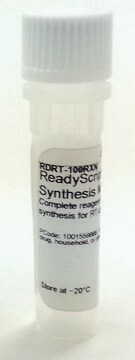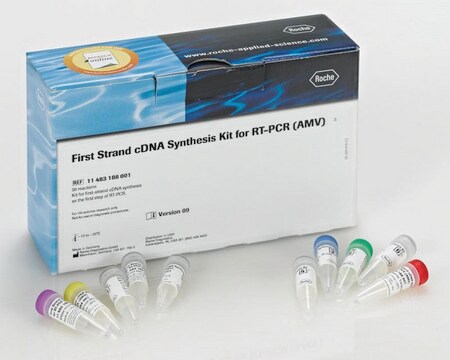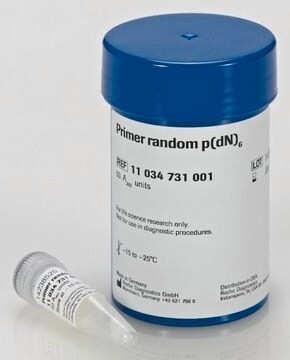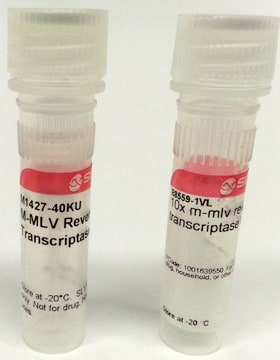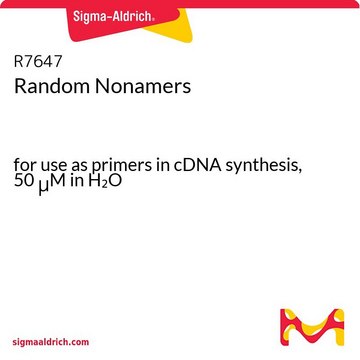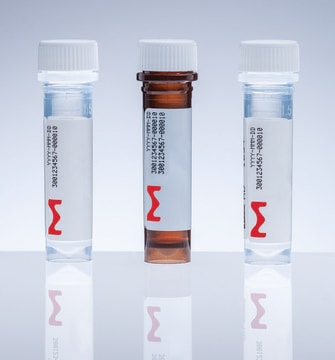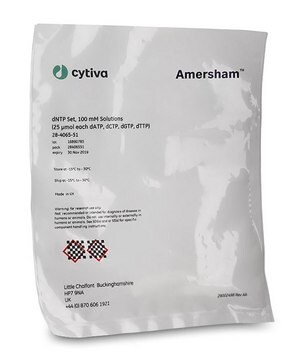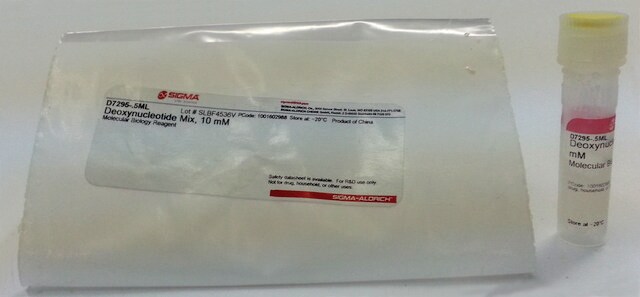O4387
Oligo(dT)23, Anchored
70 μM in H2O
Synonym(s):
Oligo(dT)23 Anchored Primer
About This Item
Recommended Products
biological source
synthetic (organic)
form
solution
usage
0.1 mL sufficient for 100 RT-PCR reactions (as described in the Technical Bulletin for Product Codes HSRT100 and HSRT20)
concentration
70 μM in H2O
color
colorless
shipped in
wet ice
storage temp.
−20°C
Related Categories
General description
Application
Features and Benefits
- In the process of preparing cDNA libraries, when there is incomplete or missing sequence information or when specific primers are not suitable, Oligo(dT)23, Anchored primers can be employed together with random nonamers (Product No. R 7647).
- These primers can serve as a substitute for reverse transcription primers in tasks like first-strand cDNA synthesis, cDNA library construction, and various other applications.
- Following transcription, the anchored oligo(dT)23 primers exhibit a reduced ability to initiate priming at higher temperatures (up to 65 °C), ensuring that they do not interfere with PCR.
- Anchored oligo(dT)23 primers may provide an advantage over standard oligo(dT) primers when generating cDNA from poly(A)+ RNA.
Other Notes
Related product
Storage Class
10 - Combustible liquids
wgk_germany
WGK 3
flash_point_f
Not applicable
flash_point_c
Not applicable
ppe
Eyeshields, Gloves
Choose from one of the most recent versions:
Already Own This Product?
Find documentation for the products that you have recently purchased in the Document Library.
Customers Also Viewed
Articles
One approach to the analysis of gene expression is to measure the concentration of mRNA of a gene. There are several challenges to such analyses, such as the differences in half life between different transcripts, the temporal patterns of transcription and the lack of correlation between mRNA and protein.
Protocols
The 3’/5’ integrity assay is a potential first step in the identification of RNA degradation. The assay is particularly useful when a large number of samples are to be analyzed or when the degradation is less than that detected by capillary systems but still sufficient to effect qPCR analyses.
Our team of scientists has experience in all areas of research including Life Science, Material Science, Chemical Synthesis, Chromatography, Analytical and many others.
Contact Technical Service



